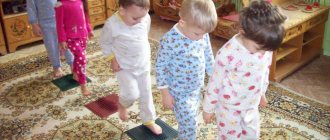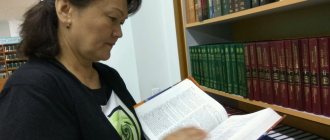Consultation for educators “Musical education in preschool educational institutions”
Svetlana Grigorova
Consultation for educators “Musical education in preschool educational institutions”
How actively do kindergarten teachers the musical education of children ? Do they all understand the importance of such participation?
The teacher carries out basically all the pedagogical work in kindergarten - therefore, he cannot remain aloof from the musical -pedagogical process.
The presence in kindergarten of two teachers - music. leader and educator , does not always lead to the desired results. If all musical education comes down only to conducting musical classes , and the teacher considers himself free from the musical development of children , then in this case, musical education is not an organic part of the entire life of children: dancing, musical playing are not included in the child’s life. The teacher , underestimating the importance of musical education in pedagogical work, does not show interest in it and does not know how to arouse interest in children.
The leading role in music classes belongs to the muses. the leader, because he can convey to children the features of musical works . lack of understanding of the educational objectives of music can lead to “no”
all the efforts
of the music director . Where the teacher loves music , loves to sing, and children take great interest in music lessons . In addition, in the “Movement”
, music.
the leader is constrained by the instrument and here it is obligatory for the teacher .
The leading role of the music director in no way reduces the activity of the teacher .
Often, the teacher considers it his duty to simply be present at the music lesson - in order to maintain discipline. And some do not even consider it necessary to attend, believing that during this time they will be able to do some business in the group. Meanwhile, without the active help of a teacher, the productivity of music lessons turns out to be much lower than possible. Carrying out the process of musical education requires great activity from the teacher. When raising a child through music , teachers must clearly understand its importance in the harmonious development of the individual. To do this, you need to clearly and distinctly understand by what means and methodological techniques you can lay the foundations for the correct perception of music .
What are the RESPONSIBILITIES OF A TEACHER in the field of music education in a preschool educational institution :
1. Know all program requirements for music education .
2. Know the musical repertoire of your group, be an active assistant to the music director in music classes .
3. Assist the music director in children’s mastering of the program musical repertoire , showing examples of precise execution of movements.
4. Conduct regular music lessons with the children of the group in the absence of a music director .
5. Learn movements with lagging children.
6. Deepen musical impressions by listening to musical works in a group using technical means.
7. Develop musical skills (ear for melody, sense of rhythm)
in the process of conducting didactic games.
8. Possess basic skills in playing children's musical instruments (metallophone, timbre bells, wooden spoons, etc.)
.
9. Carry out the musical development of children , using all sections of work: singing, listening to music , musical-rhythmic movements , playing children's musical instruments, musical-didactic games .
10. Take into account the individual capabilities and abilities of each child.
11. Develop children’s independence and initiative in using familiar songs, round dances, musical games in classes , walks, morning exercises, and in independent artistic activities.
12. Create problem situations that activate children for independent creative expression.
13. Involve children in creative games, including familiar songs, movements, and dances.
14. Use children’s musical skills and abilities in classes for other types of activities.
15. Include musical accompaniment in the organization of classes and routine moments.
16. Take direct part in the diagnostic examination of your students to identify musical skills and abilities , the individual capabilities of each child.
17. Take an active part in the preparation and holding of holidays, entertainment, musical leisure , puppet shows.
18. Prepare thematic selections of poetic material for entertainment and musical matinees .
19. Provide assistance in the manufacture of attributes and decoration of the music hall for holidays and entertainment.
20. Be artistic, inventive, emotionally mobile.
To assess the competence of the teacher regarding his role in the musical education of children, a survey can be conducted.
Questionnaire for teacher-educator
1. I know all the program requirements for music education .
2. I know the musical repertoire of my group
3. I can show examples of precise execution of movements / provide assistance.
4. I conduct regular music lessons with the children of the group in the absence of a music director .
5. I learn movements with children who are lagging behind.
6. I deepen musical impressions by listening to musical works in a group using technical means.
7. I develop musical skills (ear for melody, sense of rhythm)
in the process of conducting didactic games.
8. I have basic skills in playing children's musical instruments (metallophone, tambourine, triangle, drum, wooden spoons, etc.)
.
9. I develop children’s independence and initiative in using familiar songs, round dances, musical games in classes , walks, morning exercises, and in independent artistic activities.
10. I create problematic situations that activate children for independent creative expression.
11. I involve children in creative games that include familiar songs, movements, and dances.
12. I use the children’s musical skills and abilities in classes for other types of activities.
13. I include musical accompaniment in the organization of classes and routine moments.
14. I take a direct part in the diagnostic examination of my students to identify musical skills and abilities , the individual capabilities of each child.
15. Take an active part in the preparation and holding of holidays, entertainment, musical leisure , puppet shows.
16. I prepare thematic selections of poetic material for entertainment and musical matinees .
17. I provide assistance in the manufacture of attributes and decoration of the music hall for holidays and entertainment.
18. I demonstrate artistry, inventiveness, and emotional adequacy



